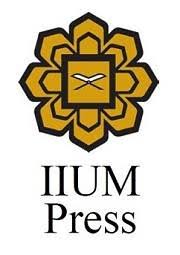المنهج النبوي في إصلاح الجار السوء
The Prophetic Method in Dealing with Bad Neighbours
DOI:
https://doi.org/10.31436/alburhn.v1i1.94Keywords:
Neighbor, Bad, Method, Reform., Neighbour, bad, method, reform, adAbstract
Abstract: The purpose of this research is to explain the prophet's r approach and method in reforming the bad neighbor, through the hadiths of taking care of the rights of the neighbor. The research is focusing on the challenge and problem that has led to a great deal of corruption and poor morals among neighbors. This research seeks to study the seriousness of the problem, and find solutions through prophetic methods of reforming the bad neighbor, through his r dealings with them, and good treatment and respect for them. The importance of this research is to highlight the need of the community to remove bad morals among themselves, and to reform these individuals who possess abhorrent morality with the enhancement of good morals and disseminating them among the society. The research includes an introduction and four subjects. Each subject has its own demands and the conclusion, in which the results of the research are presented, and finally the sources and references. The important findings of the research into the prophetic approach are: his love and affection for his neighbors, his pleasant facial expressions, his visitation if they were ill, helping them if they were abused, preventing them from doing injustice as much as possible, doing good things for them, giving condolences during tragedies, and congratulating them during joyous occasions.
Downloads
References
Ibrāhīm Muṣṭafā, Aḥmad al-Zayyat, Ḥāmid ʿAbd al-Qādir, Muḥammad al-Najjār. (n.d.). al-Muʿjam al-Wasīṭ. Cairo: Dār al-Daʿwah.
Ibn Ḥibbān, Muḥammad Abū Ḥātim al-Bustī. (1988). al-Ṣaḥīḥ, Beirut: Muʾassasah al-Risālah.
Ibn Ḥajar, Aḥmad ibn ʿAlī al-ʿAsqalānī. Fatḥ al-Bārī Sharḥ Ṣaḥīḥ al-Bukhārī. Beirut: Dār al-Maʿrifah.
Ibn Rajab, Zayn al-Dīn ʿAbd al-Raḥmān ibn Aḥmad al-Ḥanbalī. (2001). Jāmiʿ al-ʿUlūm wa al-Ḥikam fī Sharḥ Khamsīn Ḥadīthan min Jawāmiʿ al-Kalim. Beirut:M uʾassasah al-Risālah.
Ibn ʿĀshūr, Muḥammad al-Ṭāhir ibn Muḥammad. (1984H). al-Taḥrīr wa’l-Tanwīr. Tunisia: al-Dār al-Tūnisiyyah li’l-Nashr.
Ibn Fāris, Aḥmad al-Qazwīnī al-Rāzī, Abū al-Ḥusayn. (1979). Muʿjam Maqāyis al-Lughah. Beirut: Dār al-Fikr.
Ibn Fāris, Aḥmad al-Qazwīnī al-Rāzī, Abū al-Ḥusayn. (1986). Mujmal al-Lughah. Beirut: Muʾassasah al-Risālah.
Ibn Mājah, Abū ʿAbd Allāh Muḥammad ibn Yazīd al-Qazwīnī. (n.d.). al-Sunan, Dār Iḥyāʾ al-Kutub al-ʿArabiyyah.
Ibn Mufliḥ, Muḥammad ibn Mufliḥ ibn Muḥammad Abū ʿAbd Allāh al-Ḥanbalī. (n.d.). al-Ādāb al-Sharʿiyyah wa al-Minaḥ al-Marʿiyyah. ʿĀlam al-Kutub.
Ibn Manẓūr, Muḥammad ibn Mukrim. (1414H). Lisān al-ʿArab. Beirut: Dār Ṣādir.
Aḥmad ibn Muḥammad ibn Ḥanbal al-Shaybānī Abū ʿAbd Allāh. (2001). al-Musnad. Beirut: Muʾassasah al-Risālah.
al-Albānī, Muḥammad Nāṣir al-Dīn. (1992). Silsilah al-Aḥādīth al-Ḍaʿīfah wa al-Mawḍūʿah. Riyadh: Maktabah al-Maʿārif.
al-Anṣārī, Ḥasān ibn Thābit. (1994). Dīwān Ḥasān ibn Thābit. Beirut: Dār al-Kutub al-ʿIlmiyyah.
al-Bukhārī, Muḥammad ibn Ismāʿīl Abū ʿAbd Allāh. (1422H). al-Ṣaḥīḥ, Dār Ṭawq al-Najāh.
al-Bazzār, Abū Bakr Aḥmad ibn ʿAmrū. (2009). Musnad al-Bazzār al-Manshūr bi Ism al-Baḥr al-Zakhkhār. Medina: Maktabah al-ʿUlūm wa al-Ḥikam.
al-Bayḥaqī, Aḥmad ibn al-Ḥusayn (2003). Shuʿab al-Īmān, Bombay: al-Dār al-Salafiyyah.
al-Ḥākim, Abū ʿAbd Allāh Muḥammad ibn ʿAbd Allāh al-Naysābūrī. (1990). al-Mustadrak ʿalā al-Ṣaḥīḥayn. Beirut: Dār al-Kutub al-ʿIlmiyyah.
al-Ṭāʾī, Ḥātim. (2010). Dīwān. Dār Ṣādir li’l-Ṭibāʿah wa’l-Nashr.
al-Ṭabrānī, Sulaymān ibn Aḥmad. (n.d.). al-Muʿjam al-Kabīr. Cairo: Maktabah Ibn Taymiyyah.
al-Fayyūmī, Aḥmad ibn Muḥammad ibn ʿAlī Abū al-ʿAbbās. (n.d.). al-Miṣbāḥ al-Munīr fī Gharīb al-Sharḥ al-Kabīr. Beirut: al-Maktabah al-ʿIlmiyyah.
Muḥammad ibn Ismāʿīl al-Bukhārī, Abū ʿAbd Allāh. (1997). al-Adab al-Mufrad. Dār al-Ṣiddīq li’l-Nashr wa’l-Tawzīʿ, ṭ4.
Murtaḍā al-Zabīdī, Maḥmūd ibn Maḥmūd ibn ʿAbd al-Razzāq al-Ḥusaynī. (n.d.). Tāj al-ʿArūs min Jawāhir al-Qāmūs. Dār al-Hidāyah.
al-Marwazī, Abū ʿAbd Allāh al-Ḥusayn ibn al-Ḥasan. (1419H). al-Birr wa al-Ṣilah (ʿan Ibn al-Mubārak wa Ghayrih). Riyadh: Dār al-Waṭan.
Muslim ibn al-Ḥajjāj Abū al-Ḥasan al-Qushayrī al-Naysābūrī. (n.d.). al-Ṣaḥīḥ. Beirut: Dār Iḥyāʾ al-Turāth al-ʿArabī.
al-Nawawī, Abū Zakariyyā Yaḥyā ibn Sharaf. (1392H). al-Minhāj Sharḥ Ṣaḥīḥ Muslim ibn al-Ḥajjāj. Beirut: Dār Iḥyāʾ al-Turāth al-ʿArabī.
Downloads
Published
How to Cite
Issue
Section
License
In general, reusing or reproducing substantial portions of al-Burhān content requires permission. This includes the use of text, figures, tables, multimedia content, and any other material published in any issues of al-Burhān Journal of Qur'an and Sunnah Studies. For some instances, al-Burhān may make its content freely viewable; however, such material may require permission for reuse. To seek permission, please contact the editorial.









